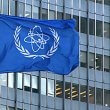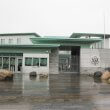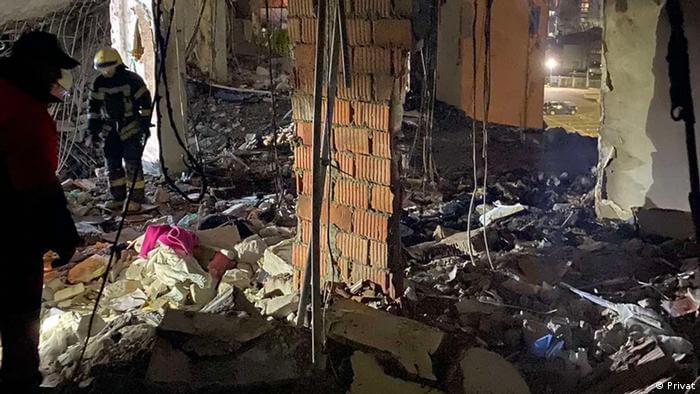"It's a micrale Olexij is still alive," 20-year-old Mykhailo from Odesa tells DW. He just returned from visiting his friend in hospital. Oleksiy Paradovky had to undergo emergency surgency after a Russian missile hit his apartment in a multi-story residential block. He suffered severe burns to his upper body.
Mykhailo says his friend, whom he knows since school days, was in the bathroom when the missile hit at 2:30 pm on Saturday. "He was buried under rubble, briefly lost and then regained consciousness, and managed to escape his destroyed apartment," Mykhailo says. "He reached the underground carpark, where neighbors hurried to him to put out his smoldering clothes and perform first aid."
Mykhailo launched a fundraising campaign to help pay for his friend's costly medical treatment. He was able to collect the equivalent of 7,000€ (7,4800$) — a substantial sum considering Ukraine's economy is teetering on the brink of collapse amid Russia's assault.
Russia's missile strike came as a shock to the people of Odesa. Scores of families had come to the port city for Holy Saturday, an important holiday in Orthodox Christianity. "Many families returned to Odesa in time for Easter, after weeks spent hiding in the countryside of western Ukraine from possible Russian attacks," says Mykhailo. "For a long time, Odesa was spared Russian bombings, so many felt safe [to return]." Presently, the front line between Ukrainian and Russian forces lies over 100 kilometers east of Odesa.
Most Odesa residents had left the city in the early weeks of the war, leaving the city almost deserted, save for many elderly people. That has changed. Now, civilians are back. Russia's attack this Saturday killed and injured scores of ordinary people. A mother and her three-month-old baby lost their lives in the attack. As did a newlywed couple, who were expecting a child. They are the first Odesa civilians to be killed in the war, which is now entering its third month. Ukraine's government reports a total of eight people ere killed and a dozen wounded on Saturday.
"A heavy blow," Victor Yorzh tells DW. The missile struck the residential building as the janitor was taking a lunch break in his apartment. He does not have much time to talk, however, as he and several volunteers are busy removing debris from the around the building. He says that "30 to 40 apartments were either destroyed or damaged in our building."
Moscow denies its attack claimed civilian lives in Odesa. Official Russian sources claim it used "high precision missiles" to target a military airport. There has been no mention of civilian deaths or casualties. The residential building struck, meanwhile, is situated some 1.5 kilometers southeast of Shkilnyi military airfield. Ukrainians military officials have confirmed that Russia fired several missiles from the Caspian Sea southeast of the city.
Military experts cannot gauge how precisely missiles fired from thousands of kilometers away can strike targets. They believe Russia's military accepts what international humanitarian law calls the risk of "excessive collateral damage," in other words: the risk of harming civilians. Indeed, Shkilnyi military airfield borders on busy residential neighborhoods with several residential tower blocks, a shopping mall, cinema, petting zoo and indoor playground, as well as a DIY store and even a monastery only several hundred meters from the airport.










